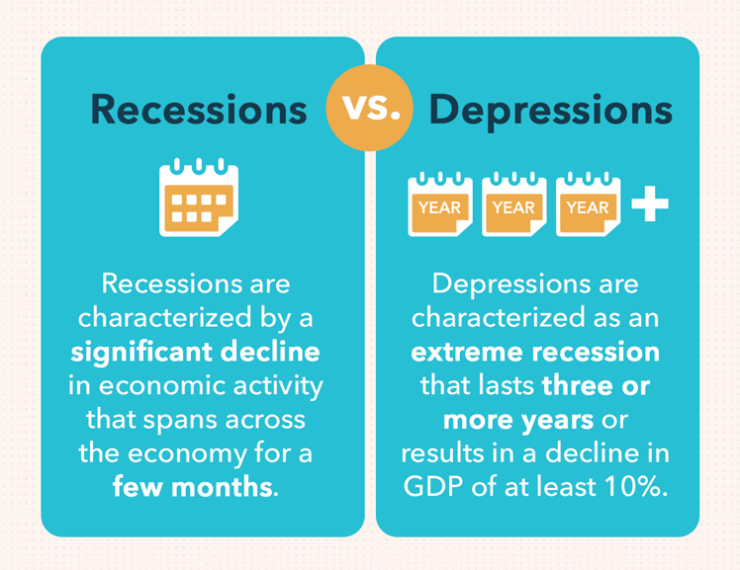The UK is officially in recession – but what does that mean?
Warning bells have been sounding for months over the risk of the economy slipping into recession.
The rule of thumb is that when the economy shrinks for six months in a row, it’s in a recession.
But what happens during a recession, and how is it likely to affect you? Here’s everything you need to know.
What is a recession?
The most commonly used definition of a recession is at least two consecutive quarters of economic contraction – or “negative growth” – in gross domestic product (GDP).
To break that down, GDP is the total value of goods and services produced over a specific time period. When it goes up, the economy is considered to be doing well.
When it goes down – negative growth or economic contraction – it’s not doing well. And when it doesn’t do well for six months, it counts as a recession.
The “two quarters” rule is a bit of a blunt tool. The Office for National Statistics doesn’t like it because there are other factors that might mean GDP falls for six months that won’t mean an economy is in recession.
But it’s widely used – including by the Bank of England – as a rule of thumb.
One reassuring thing to remember is that recessions are part of the economic cycle.
What happens during a recession and how would it affect me?
During a recession, there’s less money circulating: less money for workers from their employers, less money being spent in shops and restaurants, and less money going to the government in tax from wages to pay for things like benefits and public services.
With employers looking to make savings, people may find it harder to find work or get a pay rise. As businesses and shops close or shrink their workforce, people may lose their jobs.
Getting a mortgage or loan during a recession will prove hard as banks tighten their lending criteria.
It is also likely a recession will not be felt equally across society, with those on benefits, in precarious work or without savings faring worse.
What has happened in previous recessions?
The 2008 financial crisis was the big recession of recent memory, when after 63 quarters of expansion, the UK economy got smaller for five quarters in a row.
Unemployment rose sharply, reaching its highest point since 1995 in 2011, when almost 2.7 million people were out of work.
The economy took five years to get back to the size it was before the recession.
The early 1980s saw a severe recession after inflation hit 18% in 1980 and the early 1990s were characterised by another economic downturn.
The COVID-19 pandemic tipped the UK into its “largest recession on record” in 2020, when GDP slumped by 9.7%. However, the severe recession was followed by a strong recovery.
What’s the difference between a recession and a depression?
A depression is significantly worse than a recession: it’s longer and more severe and can have global reach.
While a recession is marked by a decline in employment, a depression is characterised by widespread unemployment.



